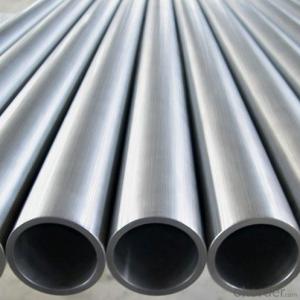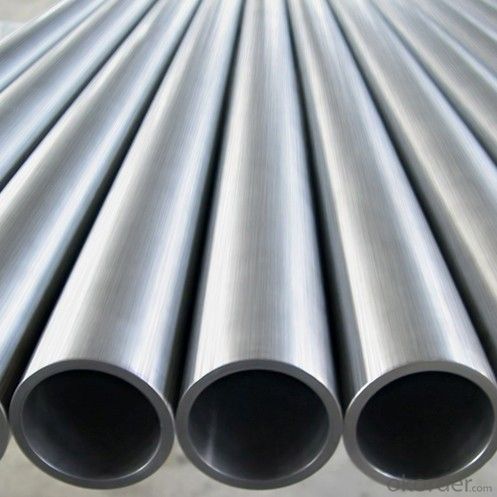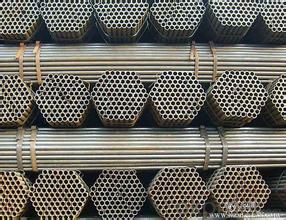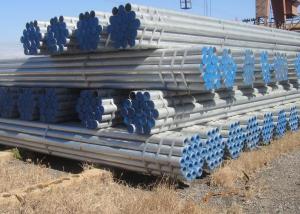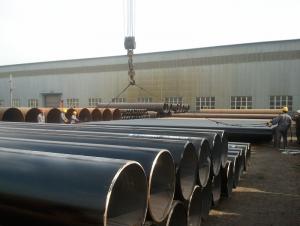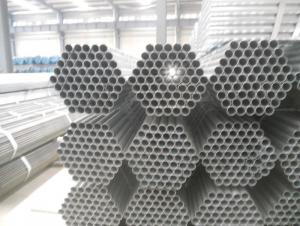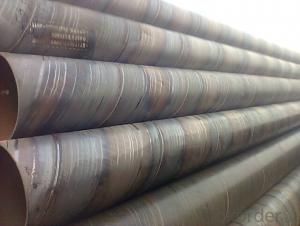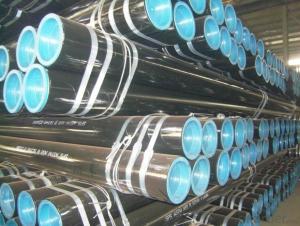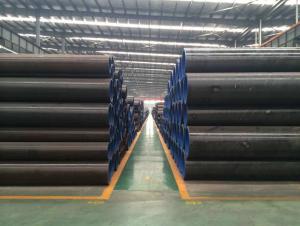SSAM Spiral Submerged Arc Welded Steel Pipe ASTM A53
- Loading Port:
- Tianjin
- Payment Terms:
- TT OR LC
- Min Order Qty:
- 25 m.t.
- Supply Capability:
- 8500 m.t./month
OKorder Service Pledge
OKorder Financial Service
You Might Also Like
1、SSAM Spiral Submerged Arc Welded Steel Pipe ASTM A53:
ASTM A53 SSAM Spiral Submerged Arc Welded Steel Pipe is electric resistance welding, the abbreviation for Oil for transporting oil and natural gas vapor liquid objects, can meet the requirements of high and low pressure, the transport in the world with pipe sector accounted for a pivotal position.
2、Main Features of Welded Black SSAM Spiral Submerged Arc Welded SteelPipe ASTM A53:
• High manufacturing accuracy
• High strength
• Good visual effect
• Reasonable price
• Small inertia resistance
• Strong heat dissipation ability
3、Welded Black SSAM Spiral Submerged Arc Welded SteelPipe Specification ASTM A53:
Standard | GB, DIN, ASTM ASTM A106-2006, ASTM A53-2007 |
Grade | 10#-45#, 16Mn 10#, 20#, 45#, 16Mn |
Thickness | 1 - 33 mm |
Section Shape | Round |
Outer Diameter | 21 - 610mm |
Place of Origin | Tianjin, China (Mainland) |
Secondary Or Not | Non-secondary |
Application | Hydraulic Pipe |
Technique | Cold Drawn |
Certification | API |
Surface Treatment | factory state or painted black |
Special Pipe | API Pipe |
Alloy Or Not | Non-alloy |
Length | 5-12M |
Outer Diameter | 21.3-610mm |
Grade | 20#, 45#, Q345, API J55, API K55, API L80, API N80, API P110, A53B |
Standard | ASME, ASTM |
1) Material:20#(ASTM A 106/A53 GRB.API5LGRB,GB),45#,16Mn,10#.
2) Specification range:OD:21.3-610mm,WT:6-70mm,length:6-12m or according to the requirement of clients.
3) Excutive standards:GB,ASME API5L.ASTM A 106/A53,Despite of the above standards,we can also supply seamless steel pipe with standard of DIN,JIS,and so on,and also develop new products according to the requirements of our clients!
4) Surface:black lacquered,varnish coating or galvanized.
5) Ends:Beveled or square cut,plastic capped,painted.
6) Packing:bundles wrapped with strong steel strip,seaworthy packing.
4、Packaging & Delivery
Packaging Details: | seaworthy package,bundles wrapped with strong steel strip |
Delivery Detail: | 15-30days after received 30%TT |
5、FAQ of Welded Black SSAM Spiral Submerged Arc Welded SteelPipe ASTM A53:
①How is the quality of your products?
Our products are manufactured strictly according to national and internaional standard, and we take a test
on every pipe before delivered out. If you want see our quality certifications and all kinds of testing report, please just ask us for it.
Guaranteed: If products’ quality don’t accord to discription as we give or the promise before you place order, we promise 100% refund.
②How about price?
Yes, we are factory and be able to give you lowest price below market one, and we have a policy that “ for saving time and absolutely honest business attitude, we quote as lowest as possible for any customer, and discount can be given according to quantity”,if you like bargain and factory price is not low enough as you think, just don’t waste your time.Please trust the quotation we would give you, it is professional one.
③Why should you chose us?
Chose happens because of quality, then price, We can give you both.Additionally, we can also offer professional products inquiry, products knowledge train(for agents), smooth goods delivery, exellent customer solution proposals.Our service formula: good quality+good price+good service=customer’s trust
SGS test is available, customer inspection before shipping is welcome, third party inspection is no problem.
6、 Welded Black SSAM Spiral Submerged Arc Welded SteelPipe Images ASTM A53:
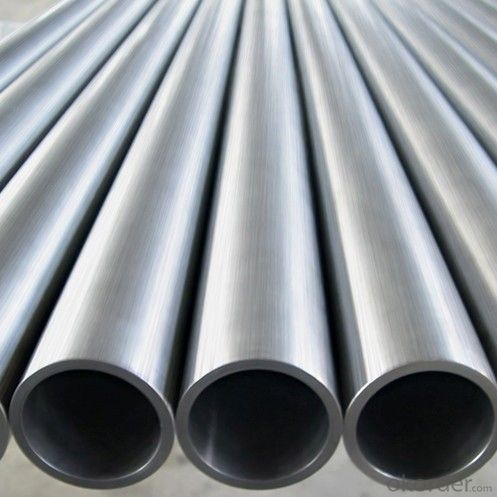
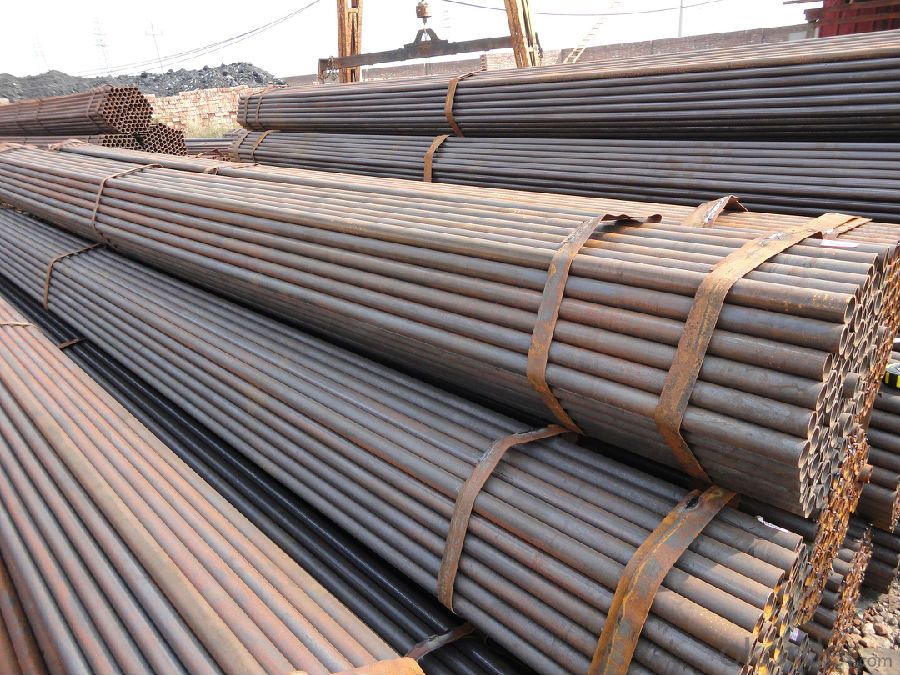
- Q: What are the safety precautions to follow while working with steel pipes?
- When working with steel pipes, it is important to follow certain safety precautions to ensure a safe working environment. Here are some key safety measures to consider: 1. Personal Protective Equipment (PPE): Always wear appropriate PPE, including safety goggles, gloves, steel-toed boots, and a hard hat. This will protect you from potential hazards such as falling objects, sharp edges, or flying particles. 2. Use proper lifting techniques: Steel pipes can be heavy and awkward to handle. Use proper lifting techniques, such as bending your knees and using your legs to lift, to avoid straining your back or causing musculoskeletal injuries. 3. Secure the work area: Clear the work area of any clutter or obstacles that could pose a tripping hazard. Ensure that the pipes are properly stored and secured to prevent them from rolling or falling. 4. Be cautious of sharp edges: Steel pipes often have sharp edges, which can cause cuts or punctures. Handle them with care and consider using protective covers or gloves to avoid injuries. 5. Use appropriate tools: Utilize the correct tools and equipment for cutting, welding, or manipulating steel pipes. Follow manufacturer instructions and guidelines to ensure safe usage. 6. Avoid working in confined spaces: Working in confined spaces poses serious risks. If it is necessary to work in such an area, ensure proper ventilation and follow confined space entry protocols to prevent asphyxiation or other hazards. 7. Follow proper welding procedures: If welding is involved, follow proper welding procedures and ensure proper ventilation in the workspace. Use fire-resistant blankets or screens to protect nearby combustible materials. 8. Be aware of hot surfaces: Steel pipes can become hot during welding or other processes. Use appropriate insulation or heat-resistant gloves to protect yourself from burns or heat-related injuries. 9. Establish communication: Establish clear communication channels with colleagues when working with steel pipes, especially when lifting or moving heavy objects. Use hand signals or verbal communication to ensure everyone is on the same page and to prevent accidents. 10. Regularly inspect tools and equipment: Before starting any task, inspect tools, equipment, and scaffolding for any damage or defects. Report and replace any faulty equipment to prevent accidents. Remember, safety is paramount when working with steel pipes. By following these precautions and using common sense, you can ensure a safe working environment for yourself and your colleagues.
- Q: Can steel pipes be used for signposts or street lighting poles?
- Yes, steel pipes can be used for signposts or street lighting poles. Steel pipes are commonly used in construction due to their strength, durability, and resistance to various environmental conditions. They provide a sturdy and reliable support structure for signposts and street lighting poles, ensuring their stability and longevity.
- Q: How are steel pipes protected from corrosion?
- Steel pipes are protected from corrosion through various methods such as applying protective coatings like paint or epoxy, galvanization, and cathodic protection. These measures create a barrier between the steel surface and corrosive elements to prevent the pipes from rusting and deteriorating.
- Q: Can steel pipes be used for hydropower generation?
- Yes, steel pipes can be used for hydropower generation. Steel pipes are often used in the construction of hydroelectric power plants to transport water from a higher elevation to lower areas, where the water's kinetic energy is converted into mechanical energy to generate electricity. The durability and strength of steel pipes make them suitable for this purpose, as they can withstand the high pressure and flow rates of water in hydropower systems.
- Q: Is there any difference between thermal expansion seamless steel pipe and seamless steel pipe?
- Differ,Thermal expansion seamless steel tube is what we often call "thermal expansion tube", the density is relatively low, but a strong contraction of the steel pipe, (seamless steel pipe) can be referred to as "heat expansion.". A finishing rolling process for pipe rolling by using oblique rolling or drawing method to enlarge pipe diameter. In a relatively short period of time, the outer diameter of the steel pipe becomes larger, and the seamless tube with nonstandard and special type can be produced, and the cost is lower and the production efficiency is high, which is the development trend of the international rolling tube field at present.
- Q: How do you calculate the maximum allowable deflection for steel pipes?
- When calculating the maximum allowable deflection for steel pipes, various factors must be taken into account. These factors include the pipe diameter, material properties, support conditions, and desired level of deflection. The maximum allowable deflection is typically determined according to industry standards and codes. One popular method for calculating the maximum allowable deflection is based on the pipe's span-to-diameter ratio, also known as the L/D ratio. The L/D ratio is calculated by dividing the pipe's span (the distance between supports) by its diameter. Numerous industry codes provide guidelines for the maximum allowable deflection based on the L/D ratio. For instance, the American Society of Mechanical Engineers (ASME) B31.1 Power Piping Code suggests that for carbon steel pipes, the maximum allowable deflection should not exceed 3% of the pipe's span when the L/D ratio is 100 or less. However, as the L/D ratio increases, the deflection limit decreases to ensure the pipe's stability and structural integrity. To calculate the maximum allowable deflection using the L/D ratio method, you first need to determine the L/D ratio based on the pipe's span and diameter. Then, you can refer to the applicable code or standard to find the corresponding maximum allowable deflection limit. It's important to note that other factors, such as the pipe material's yield strength, wall thickness, and the type of loading (e.g., dead load, live load), also influence the maximum allowable deflection. Therefore, it is crucial to consult the relevant industry standards, codes, and engineering principles to accurately calculate the maximum allowable deflection for steel pipes.
- Q: Can steel pipes be used for underground sewage treatment plants?
- Yes, steel pipes can indeed be used for underground sewage treatment plants. Steel pipes are commonly used in underground applications due to their durability, strength, and resistance to corrosion. They are capable of withstanding the harsh underground environment and can efficiently transport sewage from one area to another within the treatment plant. Moreover, steel pipes can be customized to meet the specific requirements of the sewage treatment plant, such as different diameters and wall thicknesses, ensuring proper flow and drainage. Additionally, steel pipes can be coated or lined with protective materials to enhance corrosion resistance, further extending their lifespan. Overall, steel pipes are a reliable and suitable choice for underground sewage treatment plants.
- Q: How are steel pipes used in the manufacturing of machinery?
- Steel pipes are used in the manufacturing of machinery for various purposes such as conveying fluids, gases, or materials, as structural components, and for heat transfer. They provide durability, strength, and resistance to corrosion, making them suitable for applications where high pressure, temperature, or heavy loads are involved.
- Q: How are steel pipes used in the manufacturing of shipbuilding?
- Steel pipes are used in shipbuilding for various purposes such as constructing the ship's hull, piping systems for fuel and water transport, ventilation systems, and structural support. They provide strength, durability, and corrosion resistance, making them essential components in the construction and operation of ships.
- Q: What is the difference between steel pipe and polyethylene pipe?
- Steel pipe and polyethylene pipe are two different types of materials used for plumbing and construction purposes. The main difference between these two pipes lies in their composition and characteristics. Steel pipe is made from a combination of iron and carbon, which gives it its strength and durability. It is commonly used in applications where high pressure and heavy loads are expected, such as in industrial settings or for underground gas and oil pipelines. Steel pipe is known for its resistance to corrosion and its ability to withstand extreme temperatures. On the other hand, polyethylene pipe is a type of plastic pipe made from high-density polyethylene (HDPE) or low-density polyethylene (LDPE). It is lightweight, flexible, and easy to install, making it a popular choice for residential plumbing and irrigation systems. Polyethylene pipe is resistant to chemicals, UV rays, and abrasive materials, making it suitable for both above-ground and underground installations. Another significant difference between steel pipe and polyethylene pipe is their cost. Steel pipe generally tends to be more expensive due to the raw materials and manufacturing processes involved. Polyethylene pipe, on the other hand, is relatively affordable and cost-effective, especially for smaller-scale projects. In terms of maintenance, steel pipe requires periodic inspections and maintenance to prevent corrosion and ensure its longevity. Polyethylene pipe, on the other hand, is virtually maintenance-free due to its resistance to corrosion and chemical degradation. In summary, the main difference between steel pipe and polyethylene pipe lies in their composition, strength, durability, cost, and maintenance requirements. The choice between these two pipes depends on the specific needs of the project, taking into consideration factors such as pressure, load, budget, and environmental conditions.
Send your message to us
SSAM Spiral Submerged Arc Welded Steel Pipe ASTM A53
- Loading Port:
- Tianjin
- Payment Terms:
- TT OR LC
- Min Order Qty:
- 25 m.t.
- Supply Capability:
- 8500 m.t./month
OKorder Service Pledge
OKorder Financial Service
Similar products
Hot products
Hot Searches
Related keywords
